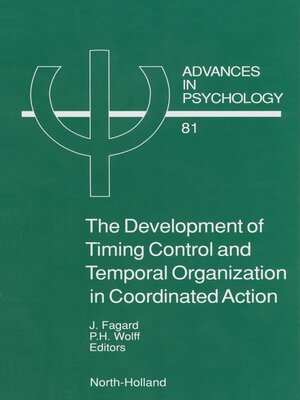The Development of Timing Control and Temporal Organization in Coordinated Action
ebook ∣ Invariant Relative Timing, Rhythms and Coordination · Advances in Psychology
By J. Fagard

Sign up to save your library
With an OverDrive account, you can save your favorite libraries for at-a-glance information about availability. Find out more about OverDrive accounts.
Find this title in Libby, the library reading app by OverDrive.



Search for a digital library with this title
Title found at these libraries:
| Library Name | Distance |
|---|---|
| Loading... |
This volume examines the development of timing in coordinated action from several different ontogenetic perspectives. Some chapters emphasize the qualitative changes in manifest motor behavior during the early growth years and examine the relation between temporal characteristics of pre- and perinatal movements and goal directed actions with qualitatively different rules of temporal organization. Other contributors stress the developmentally invariant timing characteristics of species-typical and perhaps genetically programmed motor patterns of nonhuman organisms.Also examined is the molecular machinery that generates circumscribed motor patterns with stable temporal characteristics, as well as the reversible influences of peripheral feedback on and the interactions among discrete pattern generators. Despite their basic theoretical differences, both formulations imply the same generic hypothesis: that the temporal characteristics of manifest movement or action are controlled by central agencies acting on the peripheral skeleto-muscular system in a hierarchic top-down mode.







